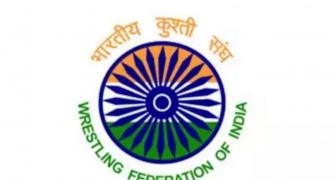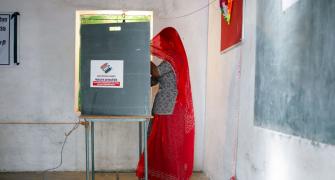The cooperative movement in India can boast of success stories like IFFCO and AMUL. But the movement today faces many challenges as it celebrates its centenary.
"Cooperatives have to be sustainable over a period of time. For this, professional management is a must. It is here that governments have a role to play in refraining from bureaucratic appointments to cooperatives. Short tenures and inappropriate appointments are destabilising the entire formation," says Radha Singh, Secretary, Ministry of Agriculture and Cooperation.
"Cooperatives have been looking up to the government for all kinds of help. The price they had to pay was official domination and interference in their day-to-day working. Government nominees in the board dominate the decision-making process. This means that cooperatives have undergone a crisis of identity, being neither government nor private," says John Kuriyan, Chief Director (Training), National Cooperative Development Corporation.
The sugar industry, where cooperatives play an important role, has been passing through a crisis in the past four years.
"Because of huge production in the country for many years, sugar prices had declined below the cost of production leading to heavy losses. It is estimated that 111 cooperative sugar mills can be categorised as sick," say industry sources.
"Cooperatives need to be more efficient and competitive but at the same time, they cannot sacrifice the basic tenets of cooperation. Inefficient co-operatives will have to either pull up their socks or down their shutters," says Kuriyan.
Another challenge for cooperatives is to effectively harness IT and marketing techniques to achieve profits, he says.
"Cooperatives cannot afford to be left behind in the use of IT, which enables fast communication and provides simultaneous handling of a large number of variables. They must also play an important role in efficient marketing of products, both primary and processed," says Singh.
Cooperatives have many advantages in tackling problems of poverty alleviation, employment generation and food security. They also have the potential to deliver goods and services in areas where both the state and private sector have failed.
"They are looked upon as people's institutions having strong grassroots level links," says Sawai Singh Sisodia, President, National Cooperative Union of India.
In the emerging economic scenario, while the liberalised corporate sector can go in for mass production, the masses can only be taken care of by an equally free and professionally managed cooperative sector.
"Cooperatives are taking various initiatives to strengthen their competitive edge in the market. These initiatives include total quality control, management and cost-reduction initiatives," says Sisodia.
"The globalisation of agriculture will definitely throw up new opportunities for our farmers, artisans and other rural producers. Expanded export potential will be a boon to some of our food and other commercial crops. But the big challenge before cooperatives is to strive to achieve greater profitability by maximising productivity," says Kuriyan.
According to Union Agriculture Minister Sharad Pawar, the Indian cooperative sector encompassing more than 500,000 cooperatives with a membership of 236 million, has played an important role in the national economy. They contribute as much as 50 per cent of the total production of sugar, 25 per cent of fertiliser production, 43 per cent of agro-credit disbursement and 11 per cent of milk procurement in the country.
The cooperative movement in India traces its origin to the agriculture and allied sector. "The formal beginning was in 1904 with the enactment of the Cooperative Credit Societies Act whose objective was to provide relief to farmers from exploitative moneylenders," says Sisodia.
"The Common Minimum Programme speaks of constitutional amendment to ensure that basic principles of cooperation are protected. The government has appointed a task force which will examine and recommend by October 31 an implementable action plan for reviving Rural Cooperative Banking institutions," says Pawar.
Over the past few years, steps like the Mutually Aided Cooperative Societies Acts by some states and the Multi-State Cooperative Societies Act have been taken to give the cooperative sector a boost.
"The ideal scenario would be to have a single liberalised cooperative law in the country, but I am aware of the difficulties in achieving this," says Singh.
The National Cooperative Policy has also been firmed up by the government to facilitate the development of cooperatives. "Recognising cooperatives as a distinct sector, the policy aims at professionalisation of cooperatives and democratisation of their operations," says Singh.







